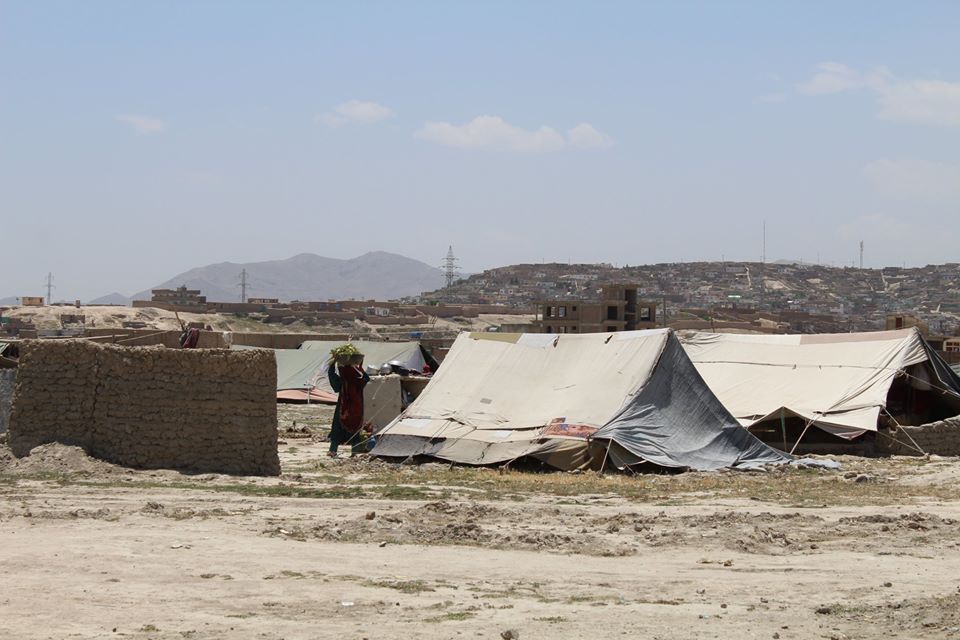Research: coronavirus fuels food security crisis in Afghanistan
26 Jun 2020

A settlement for internally displaced Afghans in Balkh Province.
Spent savings, sold assets and a high and growing dependence on food aid. That’s the picture for thousands of families in north Afghanistan according to new, original research from Hand in Hand.
The findings underscore reports from the IPC and others that that conflict, joblessness and coronavirus are combining to plunge the country into crisis, with 11 million Afghans – more than a third of the population – now classified as acutely food insecure.
Conducted earlier this month, the survey asked community leaders from eight villages in Balkh Province how coronavirus was hitting their communities. The findings will help guide Hand in Hand’s efforts as we move from delivering soap, chlorine, face masks and virus prevention to training to 65,000 vulnerable people in the north of the country, to helping our members lead the economic recovery and remain food secure.
Most residents in the villages we surveyed have been forced from their homes by Taliban violence, and today live in tents provided by the UN. Others are returnees from surrounding countries. The vast majority, 80 percent, were considered poor and vulnerable even before the coronavirus brought the economy to a halt.
Here, according to our research, is where they stand today:
- Most households depend on short-term day labour, which has completely dried up due to lockdowns.
- Many male household members (parents, youth) have migrated to Iran and Turkey looking for work.
- Dependency on food aid is high. Resources are extremely limited. As settlements rather than camps, these areas fall outside of humanitarian aid, and government support programmes are very short term.
- Most households have used up savings and are selling key assets such as livestock to feed themselves.
- Women are especially vulnerable: domestic violence has increased in many households, as have the risks of robbery in households where male members have migrated.
Hand in Hand wants to help thousands more women and their families stand up to Afghanistan’s food crisis by joining the country’s poultry value chain and producing and selling eggs.
Requiring little space and operational from home, poultry farming is ideal during a lockdown. And because most chickens are imported from outside Afghanistan, it’s one of the few value chains in the country whose worth has actually increased since March. Finally, and perhaps most importantly, it’s a direct source of nutrition for women and their families at an incredibly precarious time.
To find out how you can help, contact Hand in Hand. Or you can donate today.
